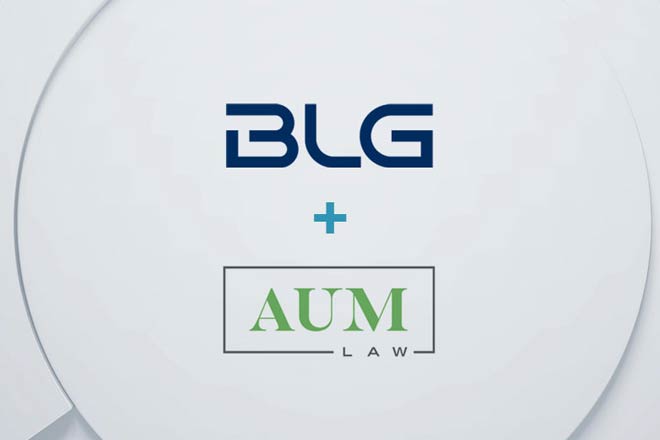By Rebecca Cowdery (BLG) and William Donegan (AUM Law)
Introduction
When the MFDA and IIROC merged, the impact on the Rules governing the day-to-day business of existing Member dealers was not significant. The existing dealer rules were repackaged, with minor modifications, as the Investment Dealer and Partially Consolidated (IDPC) Rules and the Mutual Fund Dealer (MFD) Rules. In the Fiscal 2024 Annual Priorities of the Canadian Investment Regulatory Organization (CIRO), it is a stated priority to consolidate the dealer rules into a single consolidated set of rules applicable to investment dealers and mutual fund dealers. On June 30, 2023, CIRO published a notice titled Rule Consolidation Project Update, which outlined the project principles and objectives, decisions made to date, a phased approach to drafting and implementation, and progress to date. In this note we summarize the status of the project.
This project will be impactful to all CIRO Dealer Members and will determine the shape of the rules that will govern dealers in the future.
Objectives
CIRO intends to create a new rule book that will apply to all dealer members, known as the “CIRO Dealer and Consolidated Rules” or “DC Rules”. The objectives of the project are to:
- Harmonize the rules to ensure like dealer activities are regulated in a like manner,
- Minimize regulatory arbitrage between investment dealers and mutual fund dealers,
- Adopt less prescriptive and more principles-based requirements that may be adapted to different types and sizes of dealers and dealer business models, and
- Improve access to and clarity of the rules.
Principles
The principles to be followed in the development and implementation of the DC Rules are:
- To consult regularly with stakeholders on proposed rule changes,
- To focus consultations on matters that could represent a substantive change to dealers or Approved Persons,
- To implement the changes in a manner that does not introduce too many rule changes at the same time, and
- Provide sufficient time and training in advance of the effective date of a rule change.
Decisions made already
CIRO has made the following decisions regarding the direction of the project:
- The organization and numbering of the DC Rules will follow the format of the IDPC Rules, (see Appendix 1 of the Rules Update).
- The approach to drafting will be to, where possible, draft a single rule that will apply to both types of dealers, and where necessary permit alternatives to accommodate different business models,
- Use plain language, and
- Adopt a “phased” approach for development and implementation.
In their Fiscal 2024 Annual Priorities document CIRO advises that the proposed approach on directed commission/personal incorporation for an expanded group of registered individuals will be announced later in 2023.
The phased approach
CIRO has determined that a phased approach to development and implementation will be less disruptive to stakeholders than a “big bang” approach where all changes are implemented at once. As a result, CIRO will begin to publish a new set of rules, known as the DC Rules, and as the project proceeds though phases 2 to 5 and new rules are adopted, the new rules will be added to the DC Rules and the equivalent IDPC and MFD Rules will be repealed. (Note: Phase 1 changes will be implemented last.) During the life of the project Dealer Members will need to be mindful of the changes and comply with the remaining applicable IDPC or MFD Rules and the replacement DC Rules as they come into force.
It is anticipated by CIRO that there will be five phases of development and implementation, as follows:
- Phase 1 – Rule set structure, including interpretation provisions, definitions, exemption provisions and general standards of conduct.
- Phase 2 – Adopt rules that are unique to the IDPC or MFD Rules that are assessed as not having a material impact.
- Phase 3 - Adopt rules that are common to the IDPC or MFD Rules that are assessed as not having a material impact.
- Phase 4 - Adopt rules that are unique to the IDPC or MFD Rules that are assessed as having a material impact.
- Phase 5 - Adopt rules that are common to the IDPC or MFD Rules that are assessed as having a material impact.
Appendix 2 of the Rules Update provides details of the rule categories that will be considered in each phase of the project.
Timing
CIRO state that drafting has begun on all five phases of the project. They hope to publish Phase 1 for public comment in fall 2023. Even though the Phase 1 changes will be implemented last, they will be the first set of changes published for comment. They plan to publish subsequent phases for public comment over the next two years. Since the proposed DC Rules will be subject to public comment, and CIRO Board and Canadian Securities Administrators approval, the timing of actual implementation remains unclear.
Conclusion
This project has the potential to be highly consequential for all stakeholders. We encourage all concerned to be engaged in the process.
Understanding CIRO: A quick primer
The introduction of CIRO has led to significant changes in the oversight of investment dealers and mutual fund dealers across the country, as well as new opportunities. To make it easier to find, understand and act on several important topics, BLG and AUM Law have created a simple and informative tool, which we will be updating on an ongoing basis. Click to view the tool and be sure to bookmark the page for future reference.
Key Contacts
Borden Ladner Gervais LLP
Julie Mansi, Michael Taylor, Maureen Doherty, David Di Paolo, Christian Faribault, Kathryn M. Fuller







